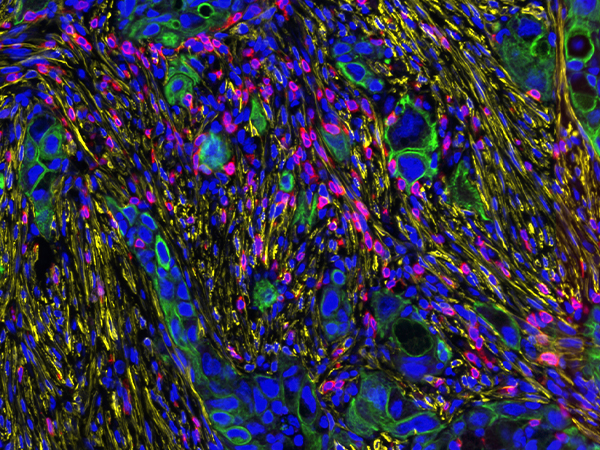A Great Month for Aspirin
We may have come a little closer to finding an answer to the debate on who will benefit from taking aspirin to prevent cardiovascular disease (CVD) and some cancers, and who will not.
Studies have shown that taking low-dose aspirin may help prevent CVD and certain cancers; however, aspirin can cause serious side effects, including gastrointestinal bleeding in some. Among those at high risk for CVD and certain cancers, it has been difficult to determine who are the ones for whom the benefit of taking low-dose aspirin outweighs the risks, and who are the people for whom taking aspirin may not provide protection, and in fact may be detrimental.
Last week, the United States Preventive Services Task Force (USPSTF), an independent volunteer panel of national experts in prevention and evidence-based medicine, issued, after careful examination of available data, a draft statement recommending low-dose aspirin to prevent CVD and colorectal cancer in adults ages 50 to 59 years:
- whose 10-year cardiovascular risk is 10 percent or greater;
- who do not have an increased risk for bleeding;
- who have a 10-year life expectancy; and
- who can take low-dose aspirin daily, for at least 10 years.
This draft was developed for the purpose of receiving public input. The final recommendation statement will be developed “after careful consideration of the feedback received,” their website states.
The recommendation made by the USPSTF is grade B, meaning there is “high certainty that the net benefit is moderate or there is moderate certainty that the net benefit is moderate to substantial.”
In addition, the draft recommendation states that for men and women ages 60 to 69 with characteristics as mentioned above, the decision to use low-dose aspirin should be made on individual basis. This part of the recommendation has received grade C, meaning, there is at least moderate certainty that the net benefit is small; therefore, the recommendation is to offer this service to patients based on professional judgment and patient preferences.
For patients younger than 50 years and older than 70 years, the task force states there is insufficient evidence to assess the risk-benefit ratio of taking low-dose aspirin in preventing CVD and colorectal cancer.
The deadline for public comment is Oct. 12.
Aspirin May Boost Immunotherapy
Earlier this month, a team of researchers at The Francis Crick Institute in London, United Kingdom, published a research article in Cell, the essence of which suggests aspirin may improve outcomes from a type of immunotherapy, immune checkpoint inhibitors.
In an earlier blog post, I discussed how low-dose aspirin may exert its effects by targeting the COX-2 signaling pathway—a pathway known to play a role in some cancers—to lower the production of prostaglandin E2 (PGE2).
In the study published in Cell, the researchers demonstrated in preclinical studies that melanoma cells use PGE2 to suppress immunity and fuel their growth. Not surprisingly, inhibiting the COX-pathway alone was insufficient to lower tumor burden in mice that bore melanoma tumors. However, when the researchers fed these mice aspirin in drinking water and then treated them with immunotherapy (anti-PD-1 antibody), they found that the tumors shrank more in these mice than in mice that received anti-PD-1 antibody treatment alone.
The researchers also found similar outcomes in mice that bore colorectal tumors and received aspirin-immunotherapy combination, which led them to conclude that COX inhibitors, such as aspirin, may be useful adjuvants for immunotherapy in cancer patients.
This simple over-the-counter drug may assist in both preventing and treating cancer.




I am wondering about NOSH aspirin, if anyone knows about that form of aspirin. I have heard of NOSH aspirin a few years ago, and am curious if NOSH would be useful in this situation? Also, when will NOSH be available to the public or medical professionals?